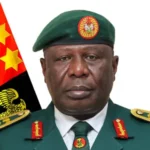A cross-section of stakeholders within the security circle have reviewed gender-specific challenges fa.cing victims of violence and insurgency, particularly in Northern Nigeria, saying it is critical to build resilience for survivors.
They submitted that there are a lot of things to be done when it comes to the issues of gender and security in Nigeria, adding that addressing those challenges will put the country on the pedestal it craves for.
The stakeholders spoke in Abuja during a one-day programme organised by the Centre for Media, Policy and Advocacy (CMPA) and University of Warwick, Britain, with the theme: “Gender, Insecurity and Resilience in the ‘Global South’: Nigeria Policy Roundtable”.
Speaking, an assistant Professor of International Security, Politics and International Studies, University of Warwick, Akin Oyawale, explained that the experience of victims of insecurity and violence need to be heard.
- Samoa agreement: Request amendment or withdraw signature, Catholic Bishops tell FG
- Yobe records 34 gender violence cases in 6 months
Oyawale situated a disconnect between policy makers, educational institutions and victims of insurgency with regards to proffering impactful solutions hence continuation of crisis in the country.
“The experiences of victims of insecurity and violence must be heard because it will help shape the solutions. Women must be involved in discussion that affects them for meaningful impact,” he said.
Also speaking during the panel discussion, the Country Director of Amnesty International, Isa Sanusi, highlighted some of the devastating impacts of insecurity on women and girls. He noted that wherever there is conflict and insecurity, the biggest victims are women and girls, while disclosing that many of the rehabilitation of victims in the Northeast region do exclude women and girls.
“A lot of the rehabilitation of victims in the Northeast excludes women, and they are most impacted because some of these young women and girls are kidnapped and forcefully made to marry the Boko Haram members,” Sanusi said.
On her part, Executive Director of NEEM Foundation, Fatima Akilu, stated that there is a need for the formulation of indigenous solutions to the insurgency challenge in Nigeria.
She advised the media not to project misleading narratives in reportage of gender and insecurity.
Similarly, the Executive Director Partners, West Africa, Kemi Okenyodo, observed that the government has not lived above board in terms of self-dignity of the girl child.
She pointed out that it is not possible to proffer effective solutions to the problems women are facing in terms of insecurity if the women themselves that are experiencing the impact are not asked to contribute to such discussions.
Earlier, Executive Director of CMPA, Dr Suleiman Suleiman, noted that the roundtable became imperative in order to help the government in some areas that relate with gender and security issues, especially in policy formulations.
 Join Daily Trust WhatsApp Community For Quick Access To News and Happenings Around You.
Join Daily Trust WhatsApp Community For Quick Access To News and Happenings Around You.


